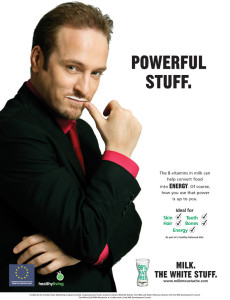Derren Brown is a British illusionist, mentalist, and skeptic known for divulging the secrets of magicians, psychics, and new age charlatans. Folks in Brown’s line of work spend a great deal of effort debunking bogus scientific and medical claims in particular. In one program, for instance, Brown trained an actor to play a faith healer and effectively tricked a community into believing the man had special divine powers to cure ill and disabled persons. The danger with faith healers is that children and adults alike are encouraged to forgo medical treatments and medication in the expectation that a god or gods will cure them. As a result, faith-healing has been responsible for the premature or unnecessary death of many vulnerable persons. Brown’s intentions, in this sense, are fundamentally humanitarian. This is more than putting on a good show; he seeks to put skepticism in the service of social justice.
Unfortunately, many skeptics seem to be unable to see through similarly unfounded health claims when it comes to nonvegan diets. In the mid-2000s, Brown appeared in a “Healthy Living” dairy campaign, joining the ranks of countless other musicians, athletes, and other non-nutritionists whose celebrity is used to persuade consumers in lieu of scientific evidence. Bathed in the warm glow of celebrity endorsement, these advertisements state that cows’ milk is good for skin, teeth, hair, bones, and energy (“facts” as they are called). With our trusted celebrities telling us so, who are we to question it?
Hardly facts at all, these statements are promulgated by a dairy industry that pushes unhealthy, dangerous products onto unsuspecting and trusting consumers. As with other Nonhuman Animal products, dairy is linked to obesity, atherosclerosis, cancer, diabetes, resistance to antibiotics, and even osteoporosis. These dubious claims to healthfulness earn legitimacy when promoted by state, medical, and educational institutions that are regularly bombarded with political pressure, free “educational” material, donations, and funding from immensely wealthy speciesist corporations. Brown may as well sport a Coca-Cola mustache while touting the health benefits of soda. That wouldn’t be much of a stretch. Coca-Cola attempts to health-wash its products as well. At the turn of the century, this carbonated sugar product was originally marketed as a wellness product. Even today, boxes of canned soda proudly state that Coke is good for hydration!
Worryingly, Brown is not the only skeptic overlooking the industry’s misrepresentation of Nonhuman Animal products as “health food.” In one interview with atheism advocate Sam Harris, Harris states that he is certainly supportive of extending moral consideration to other animals. In fact, he claims to have been a vegetarian once, but gave it up because he felt he “wasn’t getting enough protein.”
I not only find this response to be disheartening, but also rather suspicious. The ubiquitousness of protein is no medical mystery. Protein is present in just about anything that is edible, from popcorn to kale, mushrooms to pumpkin. For that matter, protein is especially plentiful in the beans, lentils, pasta, grains, and tofu that comprise much of the vegan diet. In fact, one would have to work quite hard to become protein-deficient on the typical American vegan diet. Indeed, most Americans consume double or more the recommended amount of protein, which leads to a number of health problems such as gout and renal complications.
It is strange that leaders in the skeptic community can’t see through nonveganism as one of the greatest scams to date, endangering both human and nonhuman lives alike. What becomes painfully clear is that science and rationality are products of cultural norms in much the same way as religion, spiritualism, and mysticism are. Skeptics are susceptible to the blinders of privilege, too. Subsequently, until the skeptic community begins to take seriously the injustice of speciesism and the health risks of nonveganism, I suggest we maintain a healthy skepticism about skeptics.
A version of this essay first appeared on The Academic Activist Vegan on January 3, 2013.

Readers can learn more about the racial politics of veganism in my 2016 publication, A Rational Approach to Animal Rights. Receive research updates straight to your inbox by subscribing to my newsletter.

